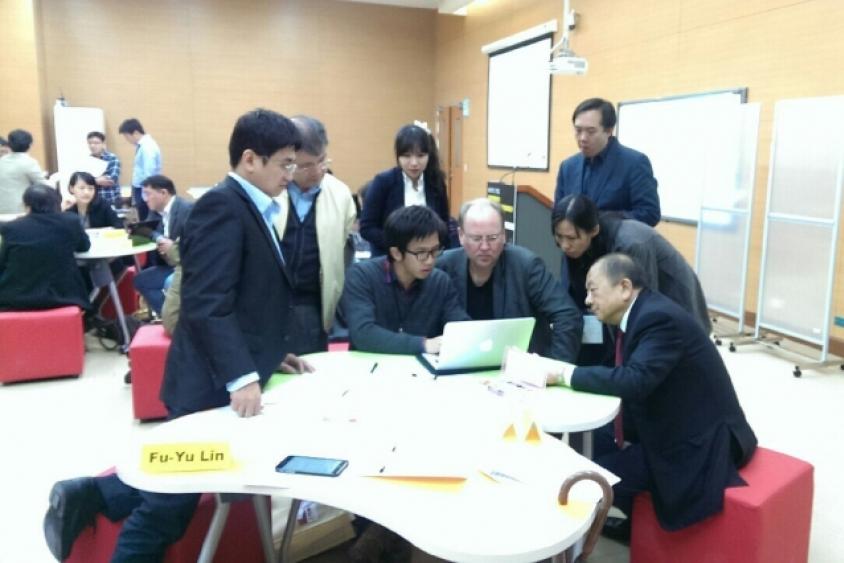MIT Professional Education launches its first program in Taiwan

Course led by two from the Media Lab focused on improving the livability of cities while dramatically reducing resource consumption.
MIT Professional Education is expanding its global footprint through the launch of locally relevant professional short courses, most recently with Beyond Smart Cities in Taiwan. The course was held last month on the coattails of an urban mobility project announcement in Taiwan involving an MIT Media Lab research team headed by Principal Research Scientist Kent Larson. A day prior to the course, Taiwan Premier Mao Chi-kuo PhD '82, along with Professor Larson, inaugurated the autonomous tricycle — coined Persuasive Electric Vehicle (PEV) — testing project in Taipei, the country’s capital.
“We were lucky to have had the opportunity to launch our very first professional education program in Taiwan in conjunction with such a high profile MIT research project,” said Bhaskar Pant, executive director of MIT Professional Education. “Our course, already very popular at MIT and featuring the same faculty involved with the PEV project, addressed not only innovations in transportation but other aspects of living more intelligently in the cities of the future. A very important element in the course also was to include local guest lecturers who brought to light local challenges confronting Taiwan specifically.”
Led by Kent Larson, director of the MIT Media Lab’s Changing Places group, and Ryan C.C. Chin, managing director of the City Science Initiative at the MIT Media Lab, this course focused on improving the livability of cities while dramatically reducing resource consumption.
“The Beyond Smart Cities course explored innovative, new systems for architecture, energy, and food,” Larson explained. “We were honored to have several notable educators and business professionals from Taiwan join us. Professor Daphne Yuan from National Chengchi University spoke about creating a digital ecosystem for the elderly population; Chester Ho, chairman of Taifong Partners, discussed entrepreneurship opportunities and mindset in Taiwan; and Lee Bo Tin from Fab Dynamics described the state of urban manufacturing in the area.”
In the spirit of MIT’s motto, “mens et manus” or “mind and hand,” participants in the course not only had the chance to hear faculty speak about the latest trends on the topic, they also had the opportunity to actively work in cross-generational groups to tackle real problems facing urban cities.” This was an experience that’s unheard of in Taiwan. “The hands-on group exercises were excellent,” a class participant noted. “Groups discussed issues they cared about passionately. MIT should definitely continue its tradition of the 'mind-and-hand' learning model here in Taiwan.”
Over the course of the next several years, MIT Professional Education plans to continue its work in Taiwan, as well as expand into new regions, including South Africa, Singapore, and South America.
“MIT has spawned thousands of new innovations and ideas over the years,” Pant says. “Through our International Programs, we hope to share that spirit of invention and knowledge with professionals around the world.”
Individuals interested in taking Beyond Smart Cities on MIT’s campus can apply on the MIT Professional Education website.
Source: MIT News


